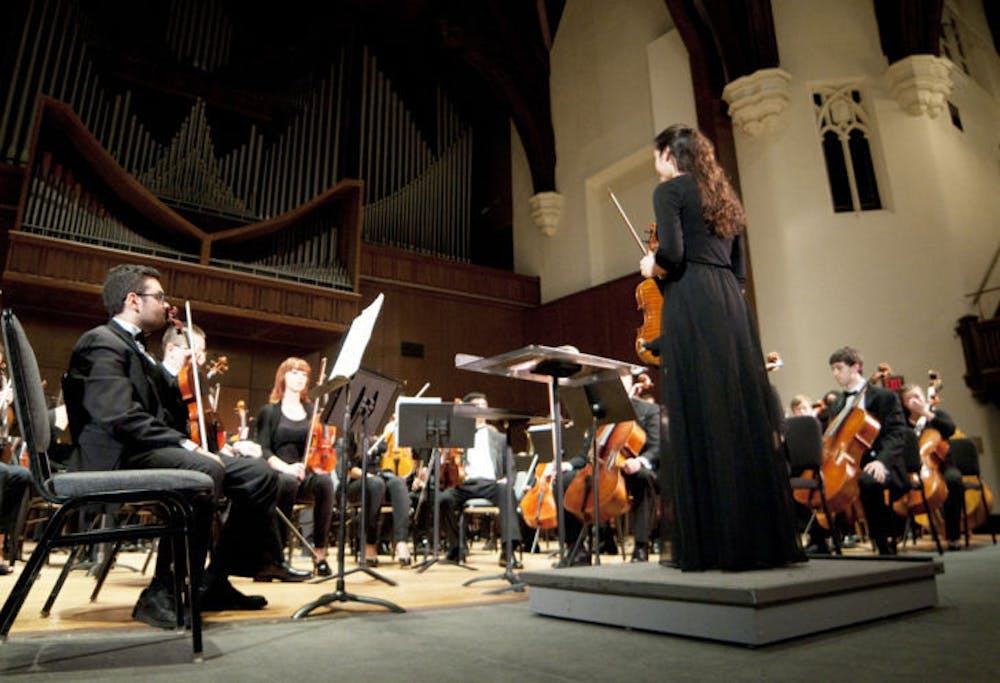Proposed government regulations may make it harder for UF musicians and faculty to showcase their art outside of the country.
The Obama administration recently announced new legislation that would ban the transport of ivory in and out of the country as a way to reduce the global demand for ivory and the subsequent slaughter of African elephants.
The legislation should be in effect by the end of June, according to the U.S. Fish and Wildlife Services.
Though the UF music school’s study abroad program in Salzburg, Austria, has had little to no trouble with musicians bringing their instruments on international flights, the proposed legislation could change that, particularly for the string instruments.
Because most string musicians prefer the sound of older instruments made before a 1989 ivory ban, many bows have a small triangle of ivory at the tip of the bow holding the hair in place.
Charlene Sertel, a representative at Gainesville Violins, said although the process is a bit involved, the ivory can be replaced for about $120.
“You have to get the whole bow rehaired in order to replace the tip with bone ivory,” Sertel said. “The whole process takes about two weeks.”
For Steven Thomas, a UF cello professor who spends many weeks annually performing as a chamber musician across the U.S. and China, the ban is one more reason to borrow a cello for his performances.
“My feeling is if an old bow has ivory already there, just let it be,” Thomas said.
He said he will borrow at least six cellos on his next trip.
“Most of the time, I borrow instruments because I’m just so sick of the whole system,” he said. “It’s just a real pain in the neck.”
But Thomas said he’s not too concerned about the ramifications of the new legislation because this isn’t the first time instrument material has been an issue.
“Bows are made out of permanbuco wood, and the same thing happened with this, where the permanbuco wood was not allowed to cross borders,” Thomas said. “This was going to destroy music. But legislatures were told that this was going to be destructive to the music industry, and the issue was resolved within a decade.”
Leisa Miller, an 18-year-old UF linguistics freshman, said she doesn’t plan to take her violin on a plane after hearing about the possible restrictions.
“Even though mine doesn’t have ivory, it makes me wonder if there’s another rule I don’t know about,” Miller said. “My instrument is really dear and valuable to me, and I don’t want it confiscated.”
[A version of this story ran on page 1 on 4/22/2014 under the headline "Laws could impact musicians’ travel abroad"]
UF’s symphony orchestra performs at the University Auditorium on Nov. 14, 2013.






